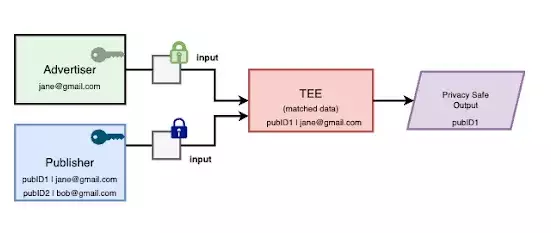In a rapidly evolving digital landscape, privacy concerns are at the forefront of advertising strategies. As users increasingly demand greater control over their personal data, technology giants like Google are adapting their practices to meet these new expectations. Central to this shift is the introduction of “confidential matching,” a novel approach that seeks to blend advanced privacy measures with sophisticated ad targeting techniques. This development signifies a substantial departure from traditional data collection methods, marking a crucial progression in the realm of digital marketing.
Confidential matching operates on the innovative principle of utilizing Trusted Execution Environments (TEEs). This technology enables the encrypted merging of first-party data from businesses with Google’s vast analytical insights. The unique aspect of TEEs is that they compartmentalize data processing, ensuring that neither Google nor the businesses involved can access the raw data outside of these secure environments. In essence, this means that while businesses can utilize Google’s advertising acumen, they no longer have to compromise their customer data’s confidentiality. Such a structure alleviates fears of data breaches and misuse, all while facilitating effective audience targeting.
However, the road to this advanced advertising solution has not been without its hurdles. Google’s initial plan to eliminate third-party cookie tracking faced significant backlash and regulatory scrutiny, leading to multiple delays in implementation. Having originally intended to phase cookies out by 2022, the tech giant was compelled to reconsider its approach in light of industry feedback and compliance challenges. As of mid-2023, Google has opted to entirely abandon the cookie phase-out in favor of developing more nuanced solutions, such as confidential matching. This pivot indicates a growing recognition of the complex web of expectations surrounding digital advertising and data privacy.
For advertisers, the advent of confidential matching offers a dual advantage. Firstly, it promises enhanced data privacy, crucial for maintaining consumer trust in an era where data breaches are alarmingly common. Secondly, it opens avenues for more targeted advertising without compromising user data. The assurance that advertisers can encrypt their data before it is transmitted to Google further reassures those with stringent data policies. This capability is particularly beneficial for industries that require high standards of data confidentiality, enabling them to leverage advertising tools while safeguarding consumer information.
Conclusion: A New Era of Advertising?
As Google continues to integrate confidential matching as the default mechanism for Customer Match and other advertising solutions, it showcases a commitment to addressing the ongoing challenges in data privacy. While the technicalities might seem daunting to everyday marketers, the core message is one of progress and adaptation. By embracing innovative technologies that prioritize user privacy while still allowing for effective marketing strategies, Google is setting a precedent. This could potentially reshape the future landscape of digital advertising, ushering in a more respectful and privacy-oriented approach that aligns with consumer expectations. The successful implementation of confidential matching could indicate not just a win for advertisers, but also a significant step towards restoring trust in digital marketing practices.


Leave a Reply